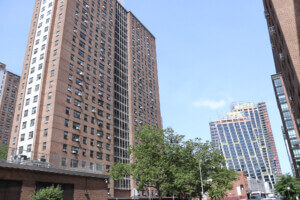It will now be increasingly difficult and costly for New York landlords to flip properties by making quick fixes to buildings that require major structural repairs and improvements. The New York City Council passed a bill yesterday that will allow the Department of Housing Preservation and Development (HPD) to clamp down on landlords who don’t “repair underlying conditions that lead to repeat violations” stated the City Council in a press release.
These violations could include leaks or damaged roofs that lead to mold, which could have a deleterious effect on a tenants “quality of life, health, and safety.” The new legislation will give the owner a four-month period to take the proper measures to fix the problem and provide proof of their compliance. Landlords could face penalties of $1,000 per unit or a minimum of $5,000 if they fail to comply with the order by deadline.
While private landlords will be reprimanded for failing to comply with orders by HPD, the question is whether the New York City Housing Authority will also be held accountable and required to pay the same penalties if repairs aren’t made. NYCHA claims that there were no “serious structural issues” caused by Hurricane Sandy, but tenants disagree and say the storm revealed a plethora of problems such as cracks, leaks, and loss of hot water.
This summer, the Daily News reported that NYCHA board chairman John B. Rhea revealed a “backlog of 338,000 maintenance orders.” City council conducted a report with help of the Boston Consulting Group, which disclosed a study that kids in public housing are “three times more likely to develop asthma as those in private homes.” NYCHA might not admit that the repairs constitute major structural issues, but the evidence of these health issues certainly contradicts this claim. Tenants with repeat mold problems have filed a suit against NYCHA for violating the Americans with Disabilities Act citing asthma as a disability. We’ll see if this new bill will compel NYCHA to expedite these maintenance orders.










